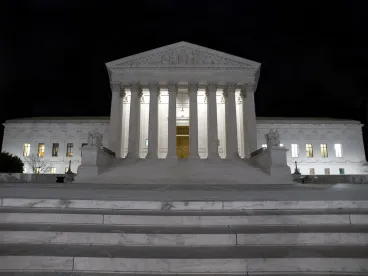The recent U.S. Supreme Court decision striking down affirmative action in undergraduate admissions, Students for Fair Admissions, Inc. v. President and Fellows of Harvard College, No. 20-1199 (the “SFFA Decision,” summarized here) has significant implications for admissions in higher education. However, some are considering whether the High Court’s holding will have a ripple effect in other areas, such as in employment law.
As the ground shifts a bit under college campuses following the SFFA Decision, employers are considering the potential impact of the decision on their DEI initiatives and recruiting. Following the SFFA Decision, a flurry of litigation, EEOC charges, public relations campaigns, and other activities have commenced in an effort to broaden and/or influence the reach of the Supreme Court’s holding. Recent public statements made by EEOC officials are illustrative.
Just hours after the SFFA Decision, Equal Employment Opportunity Chair Charlotte A. Barrows said in an EEOC Press Release,
“The decision in Students for Fair Admissions, Inc. v. President & Fellows of Harvard College and Students for Fair Admissions, Inc. v. University of North Carolina does not address employer efforts to foster diverse and inclusive workforces or to engage the talents of all qualified workers, regardless of their background. It remains lawful for employers to implement diversity, equity, inclusion, and accessibility programs that seek to ensure workers of all backgrounds are afforded equal opportunity in the workplace.”
Around the same time, EEOC Vice Chair Jocelyn Samuels also expressed that she believed employers would still be able to run their DEI programs as long as they’re not making employment decisions based on race.
During a recent webinar, as reported in Law360, EEOC Commissioner Andrea Lucas seemed to echo the SFFA Decision, underscoring the importance of “race-neutral” policies for employers. When asked to respond to Commissioner Samuels’ comments, Commissioner Lucas observed that the Vice Chair’s position:
“fails to engage with the key question facing employers today: The legal and practical risks of race- and sex-conscious DEI initiatives adopted by many, many employers in the past to achieve equity instead of equal opportunity“
In any case, as employers examine their policies, procedures, and practices to ensure compliance with applicable discrimination laws, an area for review is the use of AI-powered recruiting platforms. How employers assess, configure, and implement these recruiting tools are important considerations and vary from employer to employer, industry to industry, and platform to platform. Developing a deeper understanding of these tools is critical, particularly as the SFFA Decision could wind up reshaping this area of law.
There are several high-level issues employers should be exploring when assessing the use of these tools, such as:
-
Whether there is bias in the data used to train the system.
-
How the system works when making recruiting suggestions or decisions, and can it be explained plainly.
-
Applicant attributes considered by the algorithms, along with the weight each attribute is assigned.
-
The ability of the tool to be fine-tuned to match specific needs, and who decides what those needs are.
-
When and how the system is evaluated for bias.
-
The allocation of liability between the employer and, if applicable, the vendor supplying the tool.
-
Case studies, if any, the vendor may have involving the tool successfully reducing bias in hiring.
For several years, the EEOC has been examining employer use of AI, and the potential risks of unlawful discrimination under both the Americans with Disabilities Act and Title VII. It remains unclear whether or to what extent the SFFA Decision will shape the agency’s developing position, particularly as it relates to AI. Regardless, for employers seeking to use AI-powered recruiting platforms to enhance workforce diversity, they should proceed cautiously. AI algorithms are not immune to bias. To help minimize these risks, employers should meticulously review the data and algorithms used in their recruiting platforms. Regular audits and adjustments, as needed, should be conducted throughout the hiring process.




 />i
/>i

